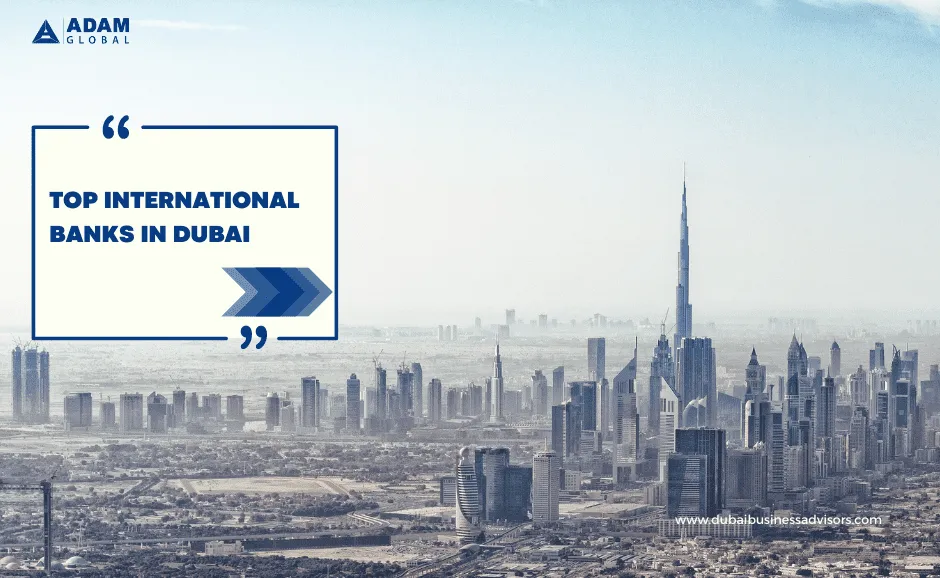Introduction
Often hailed as the city of gold, Dubai is not only a global business epicentre but also a shining beacon of top-tier education. The city is home to some of the best universities in Dubai and the UAE, catering to its diverse, multicultural residents. Whether you’re considering setting up a nursery, or a school, or joining the ranks of top universities in the UAE, this guide will simplify your journey into five manageable steps.
Dubai’s educational landscape is vast, with the UAE university ranking system showcasing a multitude of prestigious institutions, from the British University of Dubai to Emirates University. The city also hosts a variety of courses in Dubai’s Knowledge Village and the International Academic City Dubai, making it a vibrant hub of learning and innovation.
The city’s commitment to education is further demonstrated by numerous Dubai education consultants, ready to guide aspiring educators in setting up their institutions. From nurseries to colleges in the UAE, the city’s educational sector is diverse and expansive.
Moreover, Dubai’s commitment to making education accessible is evident in the availability of affordable educational options, including cheap universities in the UAE. So, whether you’re planning to establish an elite university or a budget-friendly college, Dubai’s educational ecosystem can accommodate your vision.
In essence, if you’re contemplating launching an educational institution in Dubai, this guide is your beacon, illuminating your path and simplifying the process into five straightforward steps.
Dubai is on your horizon; this guide is here to illuminate your path, simplifying the 5 steps to open an educational institution in Dubai.
Understanding KHDA
Before we delve into the steps, it’s crucial to understand the role of the Knowledge and Human Development Authority (KHDA) in Dubai. KHDA is a regulatory authority that oversees the private education sector in Dubai. Its purpose is to ensure the quality of education and learning for the city’s private schools, universities, training institutes, and other educational services.
Regulatory Functions
KHDA’s regulatory functions include licensing educational institutions, accrediting educational programs, and ensuring compliance with academic standards. It also regulates fees, admissions, staffing, and other operational aspects of private educational institutions.
School Inspections
KHDA conducts regular school inspections to assess the quality of education provided by private schools in Dubai. These inspections evaluate the school’s leadership, teaching, curriculum, assessment, health and safety, and other key areas.
Ratings and Rankings
Based on the inspection results, KHDA rates schools on a scale from “Outstanding” to “Weak”. These ratings help parents make informed decisions about their children’s education and encourage schools to improve their performance.
Services and Initiatives
KHDA offers various services and initiatives to support the educational community in Dubai. These include professional development programs for educators, research and data services, and initiatives to promote innovation and well-being in schools.
Parent-School Contract
KHDA has introduced a Parent-School Contract to clarify the rights and responsibilities of parents and schools. This contract helps to ensure a positive and productive relationship between parents and schools.
Higher Education
KHDA also oversees the quality of higher education in Dubai’s Free Zones. It works with international quality assurance agencies to accredit higher education programs and ensure they meet international standards.
Transparency and Accountability
KHDA promotes transparency and accountability in Dubai’s private education sector. It publishes detailed inspection reports and other data on its website, enabling parents, schools, and the wider community to understand the performance of private schools in Dubai.
5 Steps to Open Educational Institutions in Dubai
Prerequisites for Opening an Education Institute in Dubai
Here are the prerequisites for opening an education institute in Dubai:
- A business license: You will need to obtain a business license from the Dubai Department of Economic Development (DED).
- A teaching license: If you will be teaching at your institute, you will need to obtain a teaching license from the Knowledge and Human Development Authority (KHDA).
- A premises permit: You will need to obtain a premises permit from the KHDA. This permit will allow you to operate your institute in a specific location.
- Curriculum approval: You will need to obtain curriculum approval from the KHDA. This approval will ensure that your institute’s curriculum meets the standards set by the government.
- A staff license: If you will be hiring staff for your institute, you will need to obtain a staff license for each employee. This license will ensure that your employees are qualified to work in the education sector.
- A fire safety certificate: You will need to obtain a fire safety certificate from the Dubai Civil Defense. This certificate will ensure that your institute meets the fire safety standards set by the government.
In addition to these requirements, you may also need to meet other requirements depending on the type of education institute you are planning to open. For example, if you are planning to open a school, you will need to obtain a school license from the KHDA.
Cost of Opening Educational Institution
The cost of opening an educational institution in Dubai can vary widely, depending on the size and type of the institution, the location, and other factors. Costs can include licensing fees, the cost of securing a location, the cost of fitting out the location, the cost of staffing and operating the institution, and other costs.
Scope of Educational Institution Business in Dubai
The scope of the educational institution business in Dubai is vast and continues to expand. The city’s commitment to becoming a global hub for education, coupled with its diverse and growing population, creates fertile ground for the growth of educational institutions.
A recent report by the Khaleej Times underscores this potential. The report reveals that the UAE is set to witness an educational boom, with 50 new schools expected to accommodate 150,000 students by 2027. This expansion is a testament to the growing demand for quality education in the region and the government’s commitment to meeting this demand.
The growth is not limited to traditional schooling but extends to various forms of education and training. The demand for vocational training, special needs education, and professional development programs is also on the rise. This diversity offers opportunities for educational institutions of all types and sizes.
Moreover, the UAE government’s initiatives, such as the National Strategy for Higher Education 2030, aim to transform the educational sector, focusing on innovation and research. This strategic direction opens opportunities for higher education institutions and research centres.
Dubai’s free zones, such as Dubai Knowledge Park and Dubai International Academic City, offer attractive opportunities for setting up educational institutions. These zones provide benefits such as 100% foreign ownership, tax exemptions, and a supportive ecosystem for educational institutions.
The scope of educational institutions in Dubai is significant and growing. Whether it’s a school, a university, a vocational training centre, or a professional development institute, the opportunities are vast and varied. The key to success lies in understanding the market, offering high-quality education, and aligning with the UAE’s strategic vision for the education sector.
u003cstrongu003eWhat is the free zone for educational institutions in Dubai?u003c/strongu003e
Dubai’s Free Zones are specially designated areas that offer a range of benefits for businesses, including educational institutions. These benefits include 100% foreign ownership, tax exemptions, and streamlined licensing procedures. Here are some u003cstrongu003epopular Free Zones in Dubaiu003c/strongu003e for opening an educational institute: u003cbru003eu003cstrongu003eDubai Knowledge Park (DKP)u003c/strongu003e: Formerly known as Dubai Knowledge Village, DKP is the world’s only Free Zone dedicated to human resource management and learning excellence. It offers facilities for training and learning institutions and has a vibrant community of over 500 businesses from various sectors. u003cbru003eu003cstrongu003eDubai International Academic City (DIAC)u003c/strongu003e: DIAC is the world’s largest Free Zone dedicated to higher education. It hosts numerous regional and international colleges and universities, offering over 400 different programs of study to more than 27,000 students. u003cbru003eu003cstrongu003eDubai Silicon Oasis (DSO)u003c/strongu003e: DSO is a technology park that also hosts educational institutions. It offers a comprehensive ecosystem with various residential and lifestyle facilities, making it an attractive location for educational institutions. u003cbru003eu003cstrongu003eDubai Healthcare City (DHCC)u003c/strongu003e: While primarily focused on healthcare, DHCC also hosts medical education and research institutions. It offers state-of-the-art facilities and a strategic location in the heart of Dubai. u003cbru003eu003cstrongu003eDubai South Free Zoneu003c/strongu003e: Dubai South is a rapidly developing Free Zone that aims to host a community of innovative, knowledge-based organisations. It offers attractive options for educational institutions, particularly those focusing on aviation, logistics, and other sectors aligned with Dubai South’s vision. u003cbru003eu003cstrongu003eDubai Creative Clusters Authority (DCCA)u003c/strongu003e: DCCA oversees several Free Zones designed for creative and knowledge-based industries. These include Dubai Media City, Dubai Internet City, and Dubai Design District, all of which can be suitable locations for certain types of educational institutions. u003cbru003eEach of these Free Zones offers its own unique advantages, and the choice would depend on the specific needs and focus of the educational institution. It’s advisable to consult with a business setup consultant to understand the best options for your specific needs.
Things to Know Before Starting an Educational Institution in Dubai
Starting an educational institution in Dubai is a significant venture that requires careful planning and an understanding of the local educational landscape. Here are some crucial things you should know before embarking on this journey:
- Understanding KHDA Regulations: The Knowledge and Human Development Authority (KHDA) is the regulatory body for private education in Dubai. It’s essential to familiarize yourself with KHDA’s rules and regulations regarding the establishment and operation of educational institutions.
- Curriculum Approval: The curriculum you plan to offer needs to be approved by the KHDA. Dubai has a diverse population, and schools offer various curricula, including British, American, Indian, and the International Baccalaureate, among others.
- Location and Infrastructure: The location of your institution plays a crucial role in its success. It should be easily accessible and must meet the infrastructure requirements set by the KHDA, including safety measures, accessibility for students with special needs, and adequate facilities for sports and other extracurricular activities.
- Qualified Staff: Hiring qualified and experienced staff is a must. The KHDA has specific qualification requirements for teachers and school leaders. The quality of your staff will significantly impact your school’s rating during KHDA inspections.
- Financial Investment: Setting up an educational institution requires substantial financial investment. This includes costs for licensing, infrastructure, staff salaries, and ongoing operational costs. It’s essential to have a robust financial plan in place.
- Parent-School Contract: The KHDA mandates a Parent-School contract that outlines the rights and responsibilities of both parties. This contract aims to foster a positive relationship between the school and parents.
- Inspections and Ratings: KHDA conducts regular inspections of schools to assess their performance in various areas, including students’ achievement, teaching quality, curriculum, protection and support of students, and leadership. The results of these inspections are made public, and schools are rated accordingly.
- Community Engagement: Schools in Dubai are encouraged to foster a strong sense of community engagement. This includes involving parents in school activities, engaging with local communities, and contributing to society at large.
- Continuous Improvement: The KHDA encourages a culture of continuous improvement. Schools are expected to have a robust self-evaluation process and plans for ongoing improvement.
- Understanding the Market: Dubai’s education sector is highly competitive.
How Can Adam Global Help?
Adam Global is a leading business consultancy that can help you navigate the process of setting up an educational institution in Dubai. We offer services such as business planning, licensing, compliance, and other support to help you establish and operate a successful educational institution in Dubai.
In conclusion, setting up an educational institution in Dubai is complex but rewarding. With careful planning, compliance with regulations, and a clear understanding of the market, you can establish a successful educational institution that contributes to the development of Dubai’s education sector.



